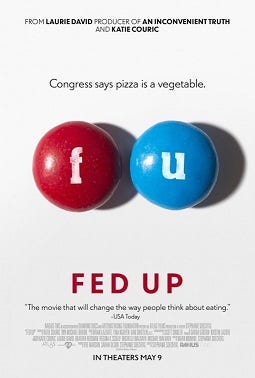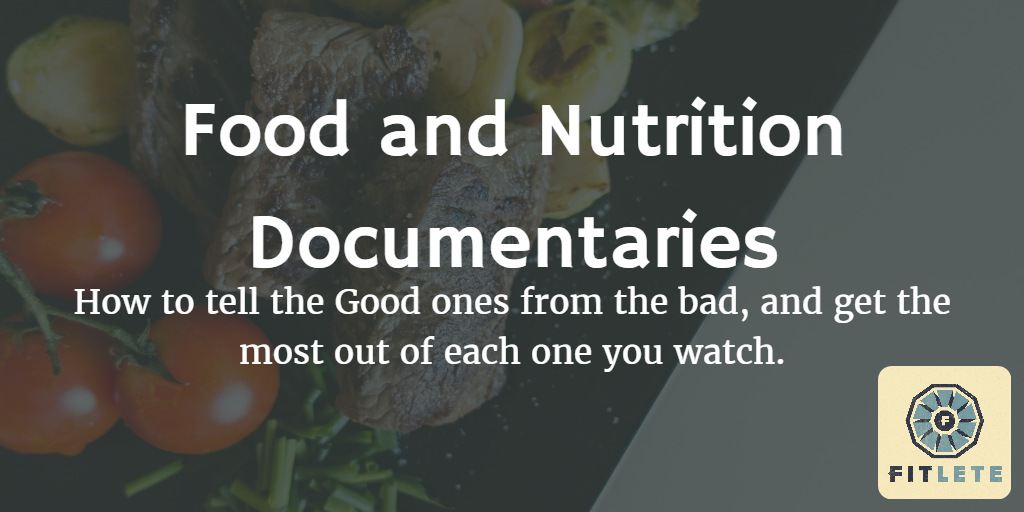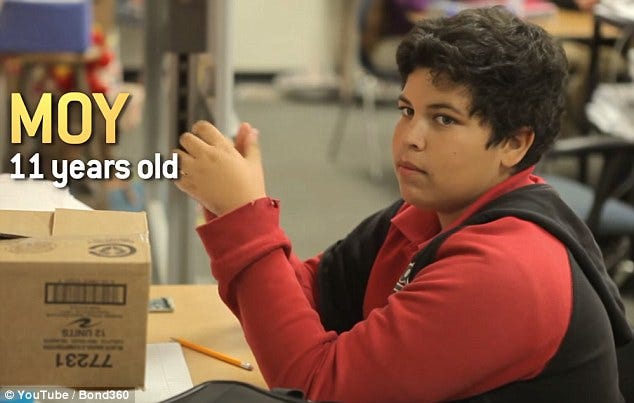Should You Stop Watching Documentaries About Food and Nutrition?
JUST STOP WATCHING THEM!
Ok ok I’m kidding, but I’m also being dead serious!
I am not kidding because probably 99% of the documentaries I have ever watched are absolutely (fucking) terrible, and I love watching documentaries. I love them. Sorry for cursing under my breath, but it is the truth that most people just don’t want to believe.
HERE IS WHY ALL THE FOOD AND NUTRITION DOCUMENTARIES ARE TERRIBLE
Food and Nutrition Documentaries are: Movies
They should not be called documentaries! I would really like them to be labelled as Food Films, or Nutrition Films. I know you are asking why with a bit of confusion in your tone, and the truth is that these documentaries are here only for our entertainment.
The majority of the popular food and nutrition documentaries I have watched replicate the same or very similar format/outline.( I don’t know what the movie industry term is…script maybe?)
Find a topic you have some passion about.
Ask A question within that topic or express a problem.
Make the audience care about it by tugging at their heart strings and possible personal connections.
Use experts to confirm the problems and give solutions.
Show the success the excerpts have had at fixing the problems with testimonials and clear evidence “that this was the way for years before our new stuff messed it up”.
Show how you personally have had success at fixing your own life with these solutions.
Think of a controversial title that tells what it will be about but is also catchy incase the news picks it up.
New documentary about childhood obesity stars four overweight kids
Bite Size follows the stories of Keanna, 13, Davion, 12, Moy, 11, and Emily, 13, all of whom are overweight All of the…www.dailymail.co.uk
The most impactful parts of the film are when they try to establish, progress, and re-establish the emotional connections you should have with the topic or problem. (ie. people are getting fatter than ever, kids are getting fatter younger, kids are getting preventable diabetes, kids are dying from diabetes and finally your kid has a 1 in 3 chance of getting and dying from diabetes before they turn 18. ) *Those are not real stats just examples, but you understand where I am going.* Now, most parents would only be concerned that they don’t want their kids to die, and forget to think critically, or openly about the information that is being expressed in the rest of the film. They do this because they need you emotionally connected to the film enough to see yourself fitting into a scenario, or in someone else’s shoes. I call this the “That could be me” phenomenon. That’s how people fall in love with movie characters or get scared out of their mind with horror and thriller movies; They see themselves as the movie characters while watching.
Remember, if it was not exciting or controversial to watch then you simply would not turn it on in the first place.
Food and Nutrition Documentaries are: Heavily Biased
If they are set up to be filmed like entertaining movies they have to be heavily biased. Period. End of story.
In order to develop a theme, narrative, or direction for their film the creators of the documentaries have to focus on 1 sole aspect and perspective of a topic. If they don’t narrow the focus their film will have way too many directions, topics, and subtopics to explain, refine, and give details about within a normal movie time limit.
Let’s Look at the Movie(documentary) FED UP

The main topic is about Increases in USA Obesity rates The general subtopic is government involvement/role The main nutrition subtopic is how bad sugar is for us to consume.
Very often the people who create the documentaries have a personal connection to the subject matter, and that is the initial spark that prompts them to want to “inform” more people about their experiences. This means regardless of how informative they would like the documentary to be they have a strong confirmation bias that will enable them to skew information. When you have such a strong confirmation bias it will be difficult to find a way to deliver information to the audience, and display this information without the bias.
“If your only tool is a hammer then everything becomes a nail”
You will never be able to tell the true story, because if you present factual information that does not directly support your narrative you can confuse your audience. When you have a strong confirmation bias going into the film you start to create a movie about heroes(your point of view) and villains(everything else) instead of simply displaying quality information about the subject matter. Even the so called experts you choose to have confirm your point of view will be cherry picked based on how they confirm the message you are trying to deliver. They might not even be experts at all, but just public figures who have an ability to articulate their opinions. ie. Journalists are not experts in nutrition just like they are not in any other professions. However, they are expert journalists.
Again, we have to remember that these are movies for our entertainment and it’s far more entertaining when we can root for a developing hero character to defeat the villains than to just show some statistics and explanations of the science.
Let’s Look at the Movie(documentary) That Sugar Film
The Confirmation Bias: The director and main character is already living a refined sugar free diet before filming starts. He has had success at maintaining, and living a life transitioning away from unhealthy eating habits and without the need to eat food items that have been made with or have refined sugar added to them. He wants to show you how his love story with a sugar free lifestyle is ready for a happily ever after in your life.
The Villain: Even before the film really starts “exploring the effects of sugar” we already start to think of sugar the same as say Voldemort in the harry potter films, just evil.
The Developing Hero Character: The hero is obviously not eating sugar, and everything that happens in the movie will try to get you to connect with the hero.
Bias Non Expert “Nutrition Science Experts”: Gary Taubes, David Wolfe, Michael Moss and a few more within smaller snippets. They might be great investigative reporters or con artists for “natural living”, but they most certainly are not experts to any degree.
Food and Nutrition Documentaries are: Not Scholarly Materials
Educational text, and films are not inherently entertaining; especially on a broad scale. They are usually quite boring to read, watch, and analyze for a general population who doesn’t have a detailed base of knowledge in the subject matter being discussed. While you might learn something you didn’t know before it does not even mean you have received the whole truth about that new information. A lot of the information you will get from these movies will only be facts that support the narrative and not address other variations or similar methods. The other information that’s left out could easily disprove any bold claims or facts that were presented, but you would never hear about it.
Documentaries like the majority of the ones that focus on food and nutrition tend to blend together a mixture of opinions, stats, theories, assumptions, and then some researched facts. The problem with that is they don’t really disclose or separate which is what when showing them on screen or talking with their experts. It’s very easy for someone to believe every word on out a so called “experts” mouth because they are presented as a position of authority and knowledge and the listener often does not question someone’s opinions when they know that person is more knowledgeable on the subject matter. This is especially true when you see that someone is labelled as a doctor or MD. It doesn’t matter if they are a doctor of theological sciences, a doctor said don’t do it.
If they are entertainment, heavily bias and not quality sources of factual information; do they actually help you?
I would say they only add to the confusion you are already experiencing with food and nutrition choices. When something makes it more difficult for you to be informed it’s better that you avoid it. I say with a heavy heart, and love of documentaries…STOP WATCHING DOCUMENTARIES! If you want to learn something then actually learn it through the most unbiased sources you can find. If you are looking for nutrition education don’t get your start by educating yourself at “Association of Anti-Sugar Nutrition Academy, The National Meatetarian Nutrition Council, or The Plant Based Nutrition Council”
If you do end up watching them just remember the overall message will be bias, take a lot of the facts “with a grain of salt”, investigate any bold claims before believing them, and look for the simple or smaller messages that are often overlooked pieces of value. Examples: With FED UP you might not have known about industry lobbying groups and their influences now you do and that’s a plus. In That Sugar Film you now know you should probably look at nutrition labels instead of assuming you know something is healthy.
Originally published at fitletes.com

Thanks For taking the time out of your day to read.
If you enjoyed it then I hope you follow, It would really mean the world to me.



